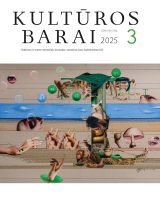Multiculturalism at its limits?
Managing diversity in the new Europe
Multiculturalism, the default strategy in western Europe for managing cultural diversity in recent decades, is increasingly under attack. In a mainstream discourse closer to that of the far-Right, minorities are turned into problems as migration allegedly threatens cultural identity. Liberal critics, on the other hand, see a threat to Enlightenment values when the appeasement of religious and cultural sensibilities is regarded as more important than the right to freedom of expression or gender equality. In central and eastern Europe, the experience is different: because minority rights are largely seen in national-territorial terms, collective rights are viewed with suspicion, while other minorities, notably the Roma, are sidelined entirely. British writer Kenan Malik met Slovak politician and journalist Fero Sebej in Bratislava to discuss multiculturalism in the East and in the West. Moderated by Samual Abrahám, editor of the journal Kritika & Kontext.

